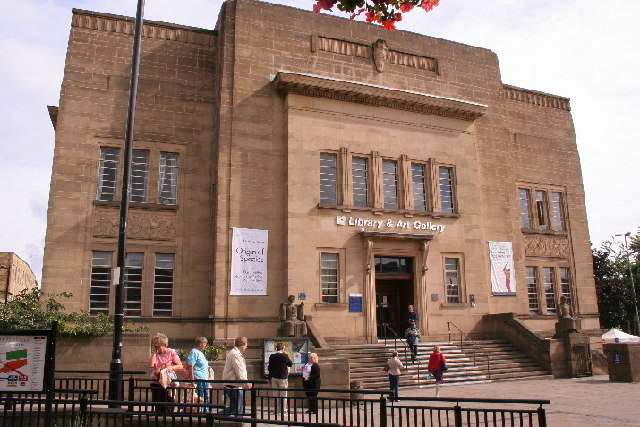J.L. Carr, A Month in the Country
I borrowed this because it’s the current monthly read of the NYRB Classics group on Goodreads, which I’d had recommended to me and wanted to join. OK, so the edition I borrowed was a Penguin one, but still… I’ve finished the book now, and rather enjoyed it: it tells of a soldier returned from the First World War, who takes on the job of uncovering a medieval wall-painting in a Yorkshire village church. Carr elegantly carries the theme of uncovering the hidden through to the novella’s relationships, and the whole is rather engaging.
Leonora Carrington, The Hearing Trumpet
Another Penguin Modern CIassic, set in a bizarre retirement home. I saw it on the same shelf as the Carr, had never heard of book or author – but it looked interesting. ‘One of the most original, joyful, satisfying and quietly original novels of the twentieth century,’ says Ali Smith on the back cover – sounds worth a read to me.
M. John Harrison, Viriconium
It’s been my intention for some time now to read M. John Harrison, because I never really have. Now I’m going to do it: the Viriconium omnibus first, then the Kefahuci Tract trilogy by next spring – because chances are that Empty Space will be shortlisted for the Clarke next year.
Dorothy Whipple, High Wages
A number of bloggers speak very highly of Persephone Books, who republish ‘neglected classics by C20th (mostly women) writers’ (says their website). I’ve never read one of their volumes myself, so when I saw this in the library, I thought I’d give it a try. The book itself is a very nicely-produced object; and the story – an exploration of retail in 1920s Lancashire – is something I wouldn’t generally go for, so I’ll be interested to see what it’s like.
Banana Yoshimoto, Hardboiled & Hard Luck
Another book I picked up on spec. Yoshimoto was on my list of authors I wanted to read; this double novella was on the shelves; so why not? I mean, that kind of serendipity is one of the great things about libraries, isn’t it?
(Post cross-linked to Library Loot on The Captive Reader.)

Recent Comments